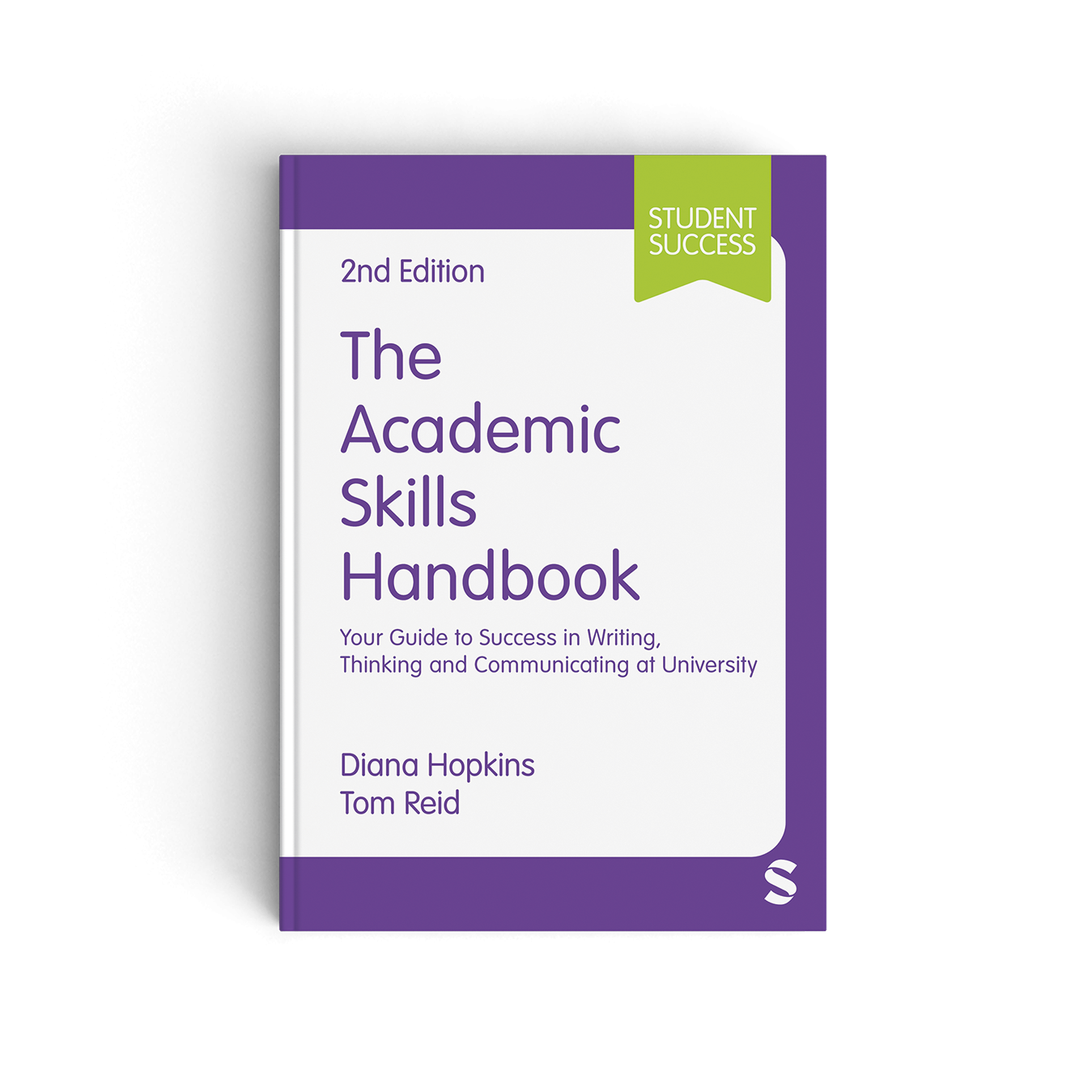You are in: Europe
Change location
You are here
Meet the authors Diana Hopkins and Tom Reid
 For Diana Hopkins and Tom Reid, writing The Academic Skills Handbook was a no-brainer: they wanted to give students the step-by-step guide they need to ace their assignments and along with a practice plan to hone their study skills. Both Diana and Tom are passionate about giving students the confidence they need to excel in university and throughout their working lives. We caught up with them both to find out more about their inspirations and the importance of their book.
For Diana Hopkins and Tom Reid, writing The Academic Skills Handbook was a no-brainer: they wanted to give students the step-by-step guide they need to ace their assignments and along with a practice plan to hone their study skills. Both Diana and Tom are passionate about giving students the confidence they need to excel in university and throughout their working lives. We caught up with them both to find out more about their inspirations and the importance of their book.



What was your source of inspiration when writing The Academic Skills Handbook?
Our students and our academic colleagues. Our students are the eyes and ears and words of experience that have inspired and informed our book. We have been teaching for some years now and what we find is that confidence and ability go hand in hand.
When students first start their studies and receive their first assignments from their tutors, it can be a daunting experience for them. So our book is all about demystifying academic conventions and expectations, and providing a practical toolkit to help students get ready for their studies and hit the ground running.
Alongside the student experience, our academic colleagues keep us informed and up to date on what they expect from their students, their strengths and weaknesses, and any new trends and developments in coursework, assignments, and assessments. And we can keep pace and make sure our support is relevant and effective.
Why is it so important to develop academic skills early on?
It takes time to develop high levels of academic competence, but by establishing a solid foundation early, students can make more rapid progress in their studies, develop confidence and resilience, thus avoiding stressful or demoralising pitfalls.
What makes your book different from other books about academic skills?
Our book is different from other books in three ways:
-
Firstly, it provides annotated models of sample assignments which highlight key structural and communication features of good academic writing, and then signposts you to parts of the book relevant to your own specific needs. An online samples library also provides further authentic examples of students’ work from a range of disciplines, to help you understand what is expected in your own subject area.
-
Secondly, it’s a ‘one-stop-shop’; it covers all the academic skills that the students will need in their studies, across all the four skills areas of writing, reading, listening, and speaking. And real-world examples, tasks and tips throughout help them develop systematically and quickly.
-
Thirdly, our book provides practical and relevant guidance on how to improve the five core principles of effective academic communication: being clear, being accurate, being concise, using an appropriate style and being informed. By mastering these five core principles students are better equipped to quickly enhance their academic literacies and improve future career prospects.
How can lecturers benefit from supporting students with their development of academic skills?
Lecturers will benefit because not only will our book reduce students’ anxiety about assignments, it will also help them to produce work that addresses lecturers' expectations and is clear, concise, accurate, informed and appropriate. This has the knock-on effect of improving their confidence, engagement and performance, and also hopefully makes the lecturers’ job a little easier!
What are the most common concerns lecturers have identified in students' work and how can they overcome these?
There are five main areas of concern that lecturers have often discussed with us:
-
Students worry about not understanding what the lecturers are expecting of them
-
Students don’t understand, or fully answer assignment questions
-
Students produce work that is poorly structured
-
Students produce work that is unclear, unfocused and too descriptive
-
Students produce work that is not in an appropriate academic style
Our book provides practice and development of the skills and language needed to overcome all of these challenges – and more!
How does your book encourage students to focus on their academic skills?
Our book uses short, easy-to-use diagnostic tests which will help students identify their strengths and weaknesses in a particular skills or language area. They can then navigate the book to select input, tasks, and tips relevant to their needs. We have also found that students really value authentic samples of students' work from their own disciplines as it gives them the confidence that they are on the right track, and motivates them to improve and extend their skills.
Our book and online samples library give students access to these invaluable real-world resources. Another important feature is the interactive answer key that not only gives correct answers but also, where appropriate, explains why it is correct.
The second edition of The Academic Skills Handbook includes new chapters on university culture, writing blogs and online and blended learning, including advice on using AI for study support. Read a free chapter to find out how to get the most out of hybrid learning.
